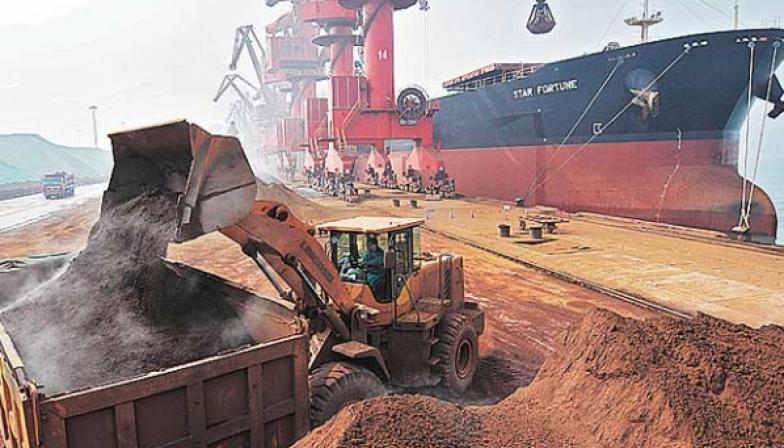China's steel mills are opting to buy higher grade iron ore cargoes domestically and from the seaborne import market over readily-available mostly medium and lower grade port stocks as this is proving more economical amid high steel prices, market sources said Monday. "Many Chinese steel mills have abundant iron ore inventories at the works and yet have booked more seaborne cargoes, while the vast majority of the iron ore stocks at the ports are medium or low grade fines, not really to the mills' liking, and lumps and pellets at the ports are too expensive," said an iron ore trader in Shandong province Monday.
Iron ore inventories at Chinese ports have been hovering at a record high 130 million-140 million mt to date in 2017 and were estimated at 134 million mt at end August, surging 27.31% year on year, China Iron & Steel Association data released last Thursday showed.
Despite this, China imported 88.7 million mt of iron ore in August, up 2.8% month on month and up 1.1% year on year, according to General Administration of Customs data released last Friday.
"With global iron ore import prices on a steady and gradual rise, it makes sense for us to lock in seaborne cargoes, and we can choose whatever form and grade of iron ore we need," a procurement official from a steel in northern Hebei province said last Friday.
While year-on-year growth in iron ore imports has been slipping each month in 2017, it remains strong, market sources said.
Over January-August, imports totaled 713.98 million mt, up 6.7% year on year, paring back from the 7.5% growth posted for January-July and down from the 12% rise posted for January.
In addition to seaborne cargoes, steel mill sources in Hebei and east China's Shandong provinces said they would also opt for domestic iron ore concentrates over port stocks.
"It is more economical to consume the 64-66% domestically-produced iron ore concentrates for pelletizing or sintering and we have quite a lot more supply this year than last year, making it possible for us to buy more," a procurement official from a second steel mill in Hebei said.
China's domestic iron ore output rose 7.7% year on year to 751.45 million mt over January-July amid the strong demand.
Stability in domestic iron ore concentrate prices over the past few weeks despite the continued strengthening in domestic steel prices has further increased buying interest, market sources said.
The price of domestic 66%-Fe ore concentrate delivered to steel mills in Tangshan city in northern Hebei province was assessed at Yuan 690-710/dmt ($106-109/dmt), including 17% value-added tax, last Friday, and has been hovering around this level for the past five weeks.



